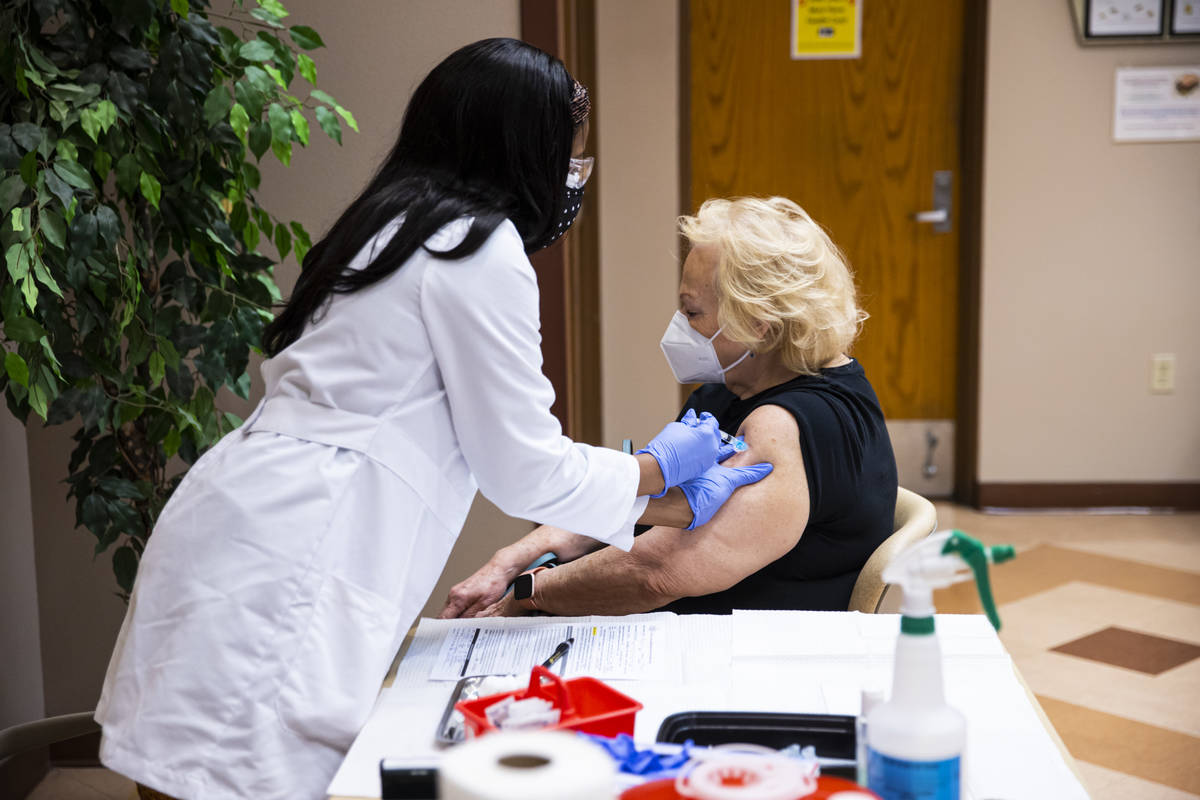Nevada records no COVID-19 deaths for 2nd straight day
Nevada public health officials on Monday reported 226 new cases and no additional deaths.
It was the second day in a row the death toll did not rise. The 14-day moving average of fatalities from COVID-19 stood at seven.
The updated numbers from the state Department of Health and Human Services show Nevada’s cumulative case total at 293,980. The death toll remained at 4,957, according to state data.
Numbers posted to the Southern Nevada Health District’s coronavirus data page showed a decrease in Clark County’s death toll — from 3,861 to 3,858 — but that decrease was not reflected in statewide data Monday.
A spokeswoman for the health district said Monday night that she did not know what caused the decrease.
New cases across the state fell below the moving two-week average of 311 cases per day. The two-week average of daily cases ticked up Monday from 308 a day earlier.
Nevada’s two-week positivity rate, which essentially tracks the percentage of people tested who are found to be infected, dropped again Monday, reaching 7.5 percent.
Meanwhile, in Clark County, officials reported 170 new coronavirus cases, bringing the local cumulative total to 226,871. County numbers are included in statewide totals.
Clark County’s two-week positivity rate took another dip Monday, reaching 8.4 percent. That’s a decrease of 0.2 percentage point from the previous day.
Contact Blake Apgar at bapgar@reviewjournal.com or 702-387-5298. Follow @blakeapgar on Twitter.
Nevada vaccine numbers
Adult population: 2.39 million
Doses shipped to state: 867,240
First dose administered: 458,492
Second dose administered: 238,432
Source: Centers for Disease Control and Prevention; U.S. Census Bureau


















